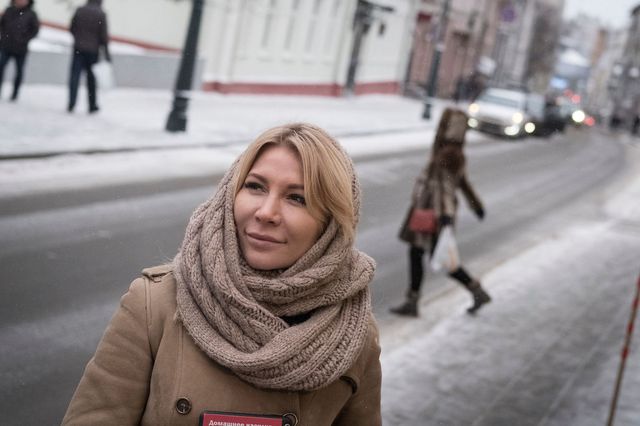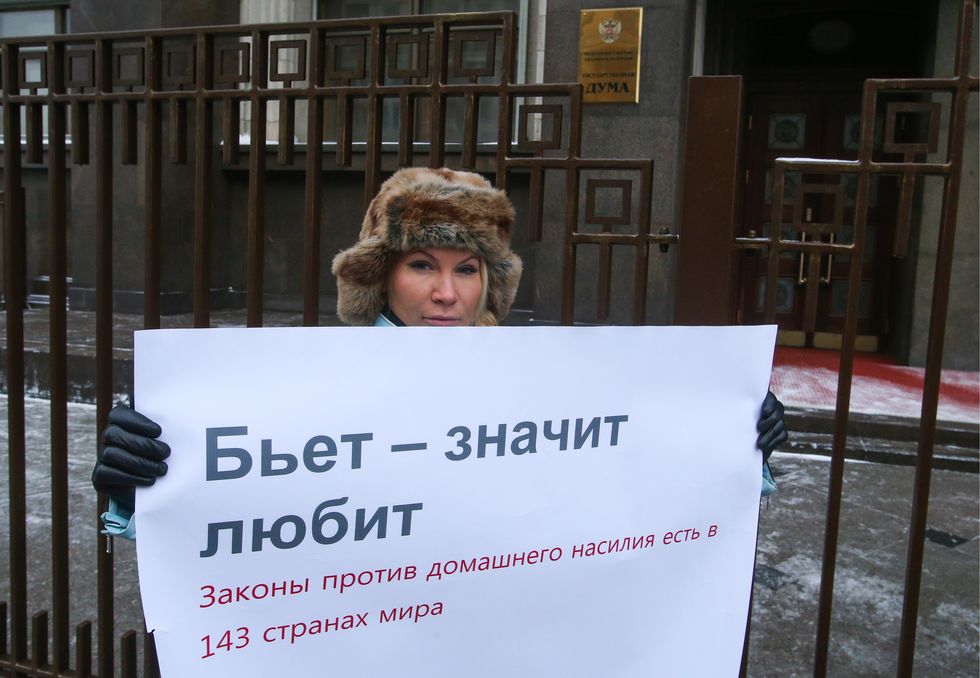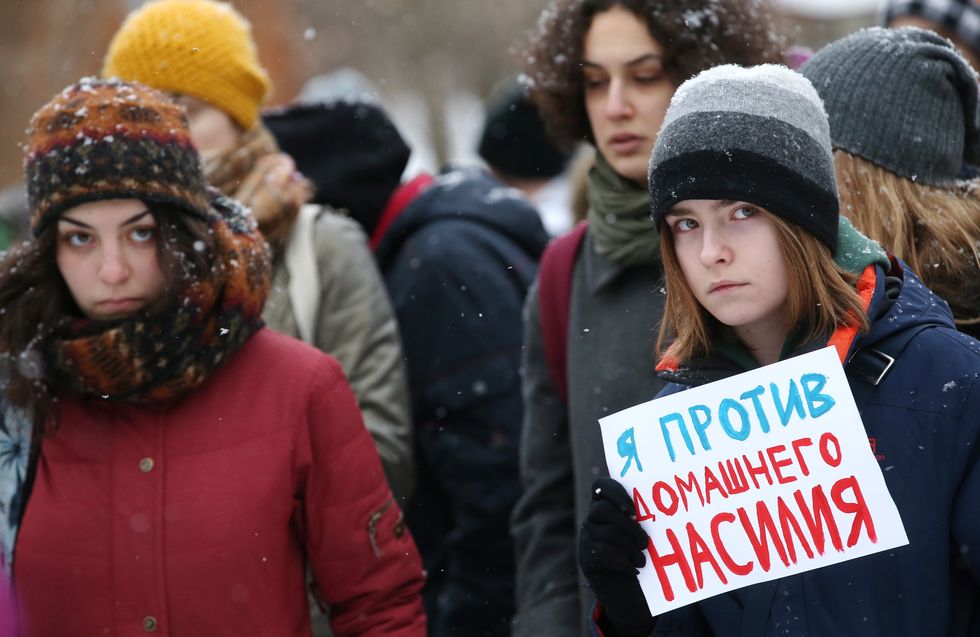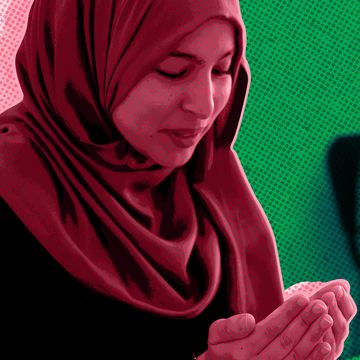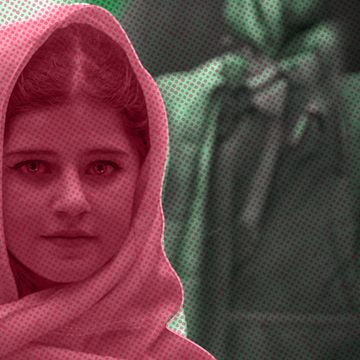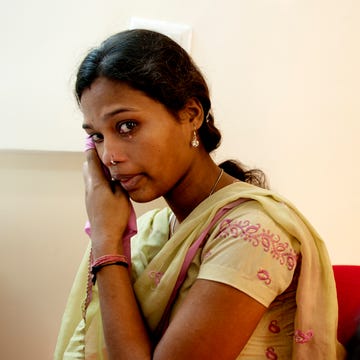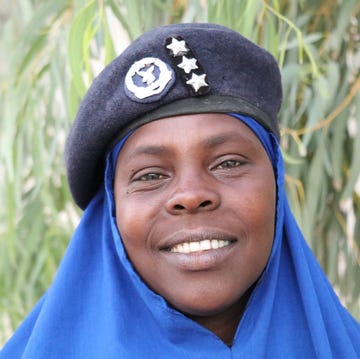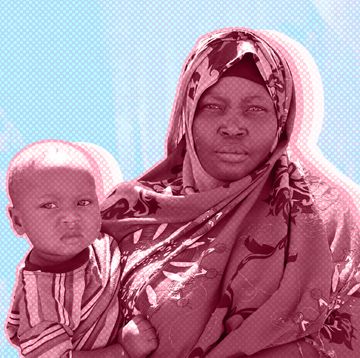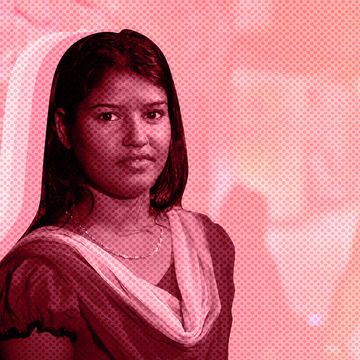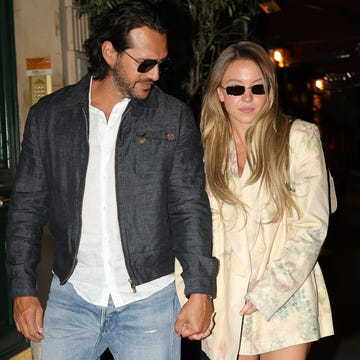MOSCOW - For Russian women's rights activist Alena Popova, battling the patriarchy is a full-time job. The 35-year-old has become a regular fixture both in and outside of the national parliament in Moscow, where she lobbies lawmakers to take a stand against the country's endemic domestic violence problem.
'I troll them,' she says with confidence, her eyes glinting.
'When they see me coming, they turn the other way. Some actually run off.'
Popova describes how she stuffs the letterboxes of MPs with photographs of battered women, along with long printed lists containing their names. There is no shortage of victims: domestic violence kills at least 12,000 women in Russia each year, according to official figures. And the situation is getting worse.
This month, Russia will mark a year since President Vladimir Putin softened domestic violence legislation, making it easier for would-be abusers to harm women.
'The punishment for beating your wife now feels like paying a parking ticket,' Popova says, exasperatedly. Under the new rules, abusers can avoid jail time and instead pay a £375 fine if the beatings occur less than once a year and do not cause broken bones or a concussion.
Popova says that with decriminalisation, the government sends a dangerous signal of tacit approval, making police even less motivated to pursue cases of abuse. She is visibly pained by the way the legal infrastructure regularly fails millions, tightening her dark green eyes in horror as she describes the plight of Russian women.
The native of the central Russian city of Yekaterinburg belongs to a cohort of women now trying to overturn the law. They also want to go a step further, and introduce a brand new domestic violence law. (Currently, 127 countries have a specific bill targeting domestic violence; Russia is one of 18 countries without one, sharing the spot with various sub-Saharan countries that are far less developed).
Popova knows how the system works. A former journalist, she is now training to be a lawyer. When she finishes, in a year's time, she plans to defend domestic violence victims. She has also twice run for parliament.
The W Project, which she co-founded with prominent Russian journalist Marina Akhmedova almost two years ago, has drafted a new domestic violence law with some of the country's most dogged family lawyers. Their law includes the introduction of restraining orders (currently lacking), and state-provided legal support (as it stands, victims are tasked with collecting the evidence against their abuser).
A capital 'W' with an equal sign below forms their logo, and the project also campaigns for equal pay, women's participation in STEM, paternity leave, the advancement of Russian women in politics and the rights of disabled people and animals.
Wary of receiving funding from abroad – and the often ill-fated consequences that accompany this in modern Russia – the programme relies on help from volunteers and fundraising campaigns. They scored a victory last September when two Aeroflot flight attendants were awarded compensation after they were demoted for the way they look. The W Project was heavily involved in their case, which became the country's first-ever gender discrimination claim against a major company.
Popova's drive feels relentless. When circling the labyrinth of the Russian duma, or parliament, she brings a folder with copies of their draft law, and corners MPs to ask that they back it when the time comes. Despite the vast majority of Russia's 450-seat parliament voting in favour of the decriminalisation last year, Popova is hopeful change is on the horizon. The W Project's petition to introduce a new law has almost reached the 300,000-signature threshold, when it will be considered by parliament and then the president. 'We're on our way,' Popova says proudly.
We are sitting in the W Project's tiny office in central Moscow, crowded with stacks of badges and t-shirts that the women sell to raise funds. They are decorated with playful cartoons carrying serious messages. One reads, 'Feminism is strength/The patriarchy is a graveyard.'
Leaning against the walls are comics-inspired cardboard cutouts, notably Superwoman, which Popova and her team bring to the small rallies they hold against domestic violence legislation outside of parliament. Their campaigning is working: she says political backing is growing, and that several MPs who voted in favour of decriminalisation now wish they hadn't.
Popova's belief in the power of Russian women is unwavering, arguing that Russia's warped gender ratio – there are 12 million more women in the country than men – will work in their favour.
'That is the size of Moscow,' she says with conviction. 'Imagine what we can do.'
Read More from ELLE X The Fuller Project's The Warriors here:
'The Warriors' is a year-long reporting project by ELLE and the Fuller Project for International Reporting, funded by theEuropean Journalism Centre via its Innovation in Development Reporting Grant Programme.
